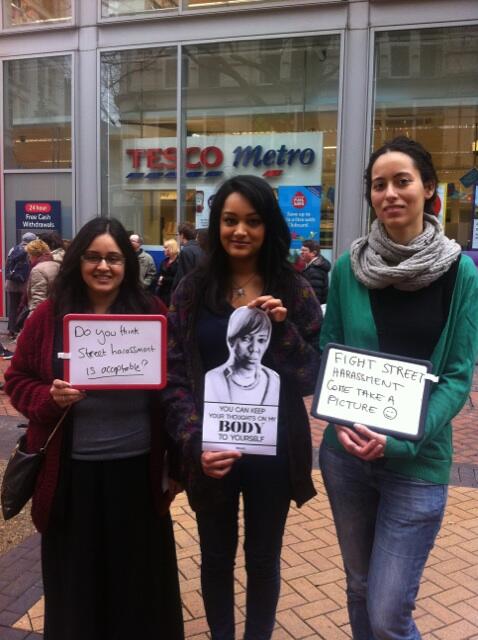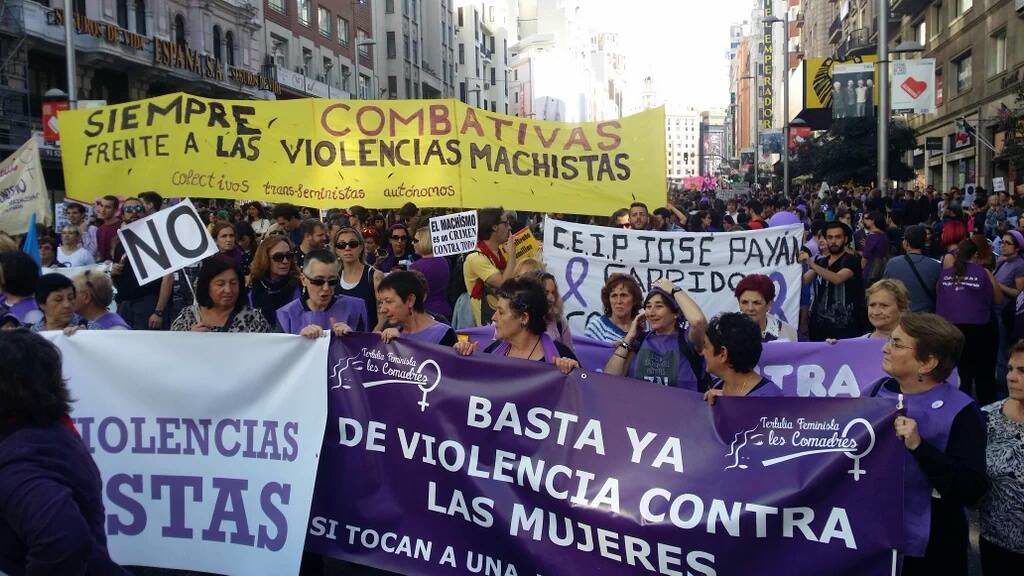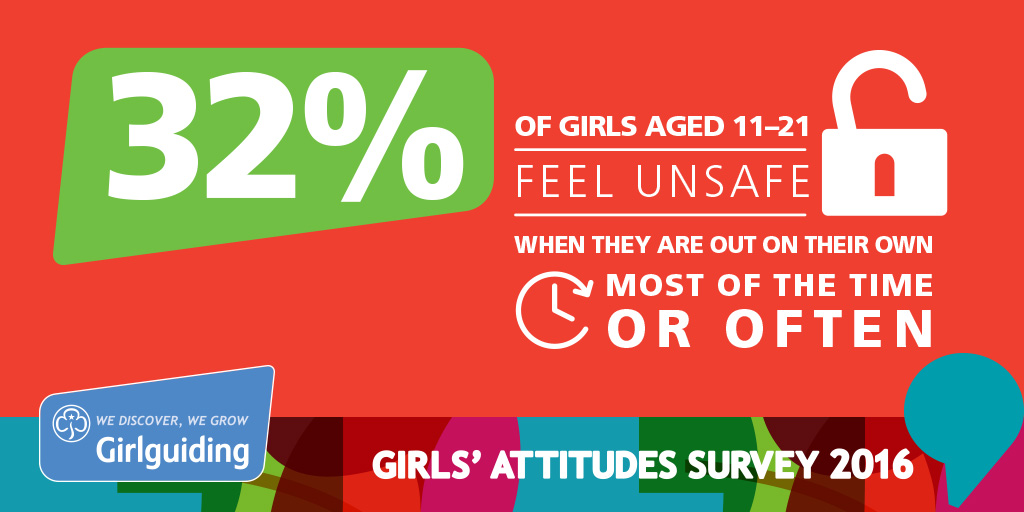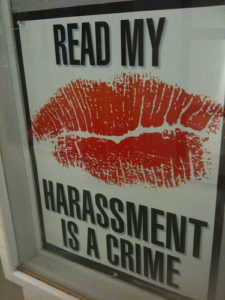Annabel Laughton, Gloucestershire, UK, SSH Blog Correspondent
 Hello readers! I’m delighted to be blogging for Stop Street Harassment, and am looking forward to bringing you some exciting activist stories from England. For my first post, I decided to find out what the street harassment picture looks like in the UK as a whole.
Hello readers! I’m delighted to be blogging for Stop Street Harassment, and am looking forward to bringing you some exciting activist stories from England. For my first post, I decided to find out what the street harassment picture looks like in the UK as a whole.
2016 produced some interesting research related to Street Harassment. As reported on the SSH blog in March, the UK-based End Violence against Women coalition commissioned a YouGov survey. The most striking figure to emerge was that 85% of young women have experienced street harassment, and 45% of young women have experienced it in the form of sexual touching. Street harassment isn’t restricted to the 18 – 24 year olds though; 65% of all women have experienced it, and 35% have experienced it as sexual touching. In another headline finding, over 75% of women were under 21 the first time it happened.
Girlguiding UK produced the Girls Attitudes Survey 2016, which among many other findings, showed that 37% of girls aged 11 – 16 experience street harassment sometimes or often. Even more recently, the Fawcett Society released a new report, Sounds Familiar, which shows women experiencing high levels of hostility in all areas of life. It highlights the disproportionate targeting of Muslim women by abusers, and shows that the tired old trope of blaming women for what they were wearing is alive and well.
It is my view that street harassment is grossly underestimated as a problem in the UK. I believe most men are blind to its existence, or think it only happens on isolated occasions. I don’t think most men understand the extent and forms of sexual harassment that women experience in public every day, or the impact it has on women. Furthermore, I believe there is little understanding of how street harassment connects with and enables other forms of violence and oppression women face in the UK. A woman is raped in Britain every six minutes. Two women a week are murdered by a partner or ex. 1220 cases of forced marriage were reported in 2015. Almost two thirds of young women have experienced sexual harassment at work.
These facts do not stand apart from one another, and neither do wider cultural ones: on average, boys first view porn at the age of 11; only 7 of the FTSE 100 companies have a female boss; the gender pay gap is 18%. I suspect some perpetrating harassment do not truly know that is what they are doing, so accustomed are they to seeing women as existing for their entertainment.
As SSH reported, in 2016 Nottinghamshire police became the first police force in the UK to classify misogyny as a hate crime. To me that indicates just how far society is lagging behind in its understanding of this issue. Whether it’s a “cheer up love” or a sexual comment, a leer, being followed home, a hand up the skirt or rape, we all know we are targeted because we are women.
But all is not lost. There are many powerful and inspiring women tackling street harassment here, and over the next few months I’ll speak to activists standing up to this pervasive culture of objectification and abuse.
Annabel is involved in campaigns for human rights, mental health, environmental issues and social justice. She has an honours degree in Classical Studies, a diploma in counselling, and works in Higher Education.



 Today marks the start of Freshers’ Week here in the UK. Over 400,000 undergraduates begin their first week of their first term of their first year at university. A longstanding institution, ‘Freshers’ Week’ – or ‘Welcome Week’, to give it it’s formal name – is fun, flirty and fabulous. A lot of planning goes into making it so and this year, more so than any other, a lot of effort has also gone into ensuring students’ sexual safety.
Today marks the start of Freshers’ Week here in the UK. Over 400,000 undergraduates begin their first week of their first term of their first year at university. A longstanding institution, ‘Freshers’ Week’ – or ‘Welcome Week’, to give it it’s formal name – is fun, flirty and fabulous. A lot of planning goes into making it so and this year, more so than any other, a lot of effort has also gone into ensuring students’ sexual safety. There’s big news out of the UK this week.
There’s big news out of the UK this week.